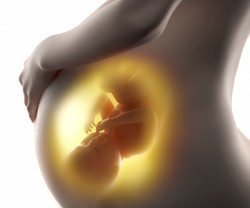Treating mother-baby incompatibility disorders
Foetal and neonatal alloimmune thrombocytopenia (FNAIT) is a potentially life-threatening condition in new-born babies associated with an incompatibility in human platelet antigens (HPAs). HPAs are polymorphisms in platelet membrane glycoproteins (GPs) that can stimulate production of alloantibodies. FNAIT may develop when a mother develops antibodies that attack and destroy foetal platelets, leading to an inability to tackle internal bleedings. Almost half a century ago, a drug was developed to prevent the Rhesus antigen mismatch between mother and baby. Anti-D immunoglobulins are nowadays used successfully as a prophylactic treatment to prohibit the development of anti-Rhesus antibodies. In a similar way, scientists on the EU-funded PROFNAIT project aim to generate an immunoglobulin drug to eliminate the risk for FNAIT and take it through regulatory approval. The so-called NAITgam drug will be manufactured from blood plasma of immunised donors. For this purpose, project partners aim to collect plasma from women who have been immunised, test the drug in clinical trials and ultimately bring it to the market. During the first part of the project, the consortium set up a European-United States network for recruiting donors and collecting plasma samples. Established procedures and methods for assaying and fractionating plasma to obtain human immunoglobulins will be used. Upcoming clinical trials have been designed to prove the safety and efficacy of the new FNAIT prophylaxis and reviewed by both the European (EMA) and US (FDA) regulatory authorities. The PROFNAIT partners’ efforts to prevent FNAIT are supported by medical societies and key opinion leaders in both EU and the US and this is critical for the implementation of testing for identification of the 2% at-risk pregnancies.
Keywords
Immunoglobulins, foetal and neonatal alloimmune thrombocytopenia, FNAIT, human platelet antigens, prophylactic treatment, hyperimmune, HPA-1a typing

